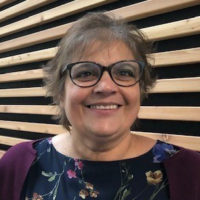Head of Childhood, Youth & Families and Professor
Faculty of Health, Education and Society

Working with Children, Young People and Families BA (Hons)
- Home
- Courses by subject
- Working with Children Young People and Families...
Key Facts
-
UCAS Code
3 year: L590
4 year: L591 -
Level
UndergraduateUG BA (Hons)
-
Duration
3 years full time
4 years full time (with foundation)
4-6 years part time -
Starting
September
-
CCC at A Level
MMM at BTEC -
Full time: £9,535
Part Time: £1,585 per 20 credit module
Integrated Foundation Year: £5,760 -
Full Time: £15,700
Integrated Foundation Year: £15,700 -
Waterside
Updated 09/04/2025
Updated 09/04/2025
Get in touch
For questions regarding study and admissions please contact us:
UK STUDENTS ENQUIRIES
study@northampton.ac.uk
0300 303 2772
INTERNATIONAL STUDENTS ENQUIRIES
Develop your knowledge and understanding of the lives and experiences of children, young people and their families through academic study and work-based learning with the University of Northampton’s ‘Working with children, young people and families’ BA degree. Driven by values of inclusion, empowerment and social justice, this exciting degree supports your academic and professional development to enhance your skills and career prospects so that you can make a positive impact for children, young people and families. You will explore a range of topics and key issues, including poverty, mental health, youth offending, safeguarding and anti-discriminatory practice.
This degree will help you to navigate a breadth of theoretical, practical and social issues that challenge and support ever-transforming services for children, young people and families. The Government agenda has seen the need for more integrated and responsive services that includes emotional and mental health support for children and young people; practice that works to support families holistically; play-work; behaviour support and youth justice.
The University of Northampton is proud to be recognised for its excellence.
The University of Northampton is a top 10 institution for Childhood and Youth Studies in the Complete University Guide league tables for 2024.
21st for Satisfied with Teaching for Education –The Guardian University Guide 2025 (Education League Table)
Highlights
- The University of Northampton is a top 20 institution for Childhood and Youth Studies in the Complete University Guide league tables for 2022.
- You will have a placement in every year of study; each with a different focus so you can explore a range of settings and possible career aspirations. This is fully supported by university tutors and mentors in placement settings.
- The opportunity to take part in national and international study trips
- Regular opportunities to get involved with Special Interest Groups, visiting researchers and All Party Parliamentary groups
- Guaranteed interview for PGCE Primary Education (5-11) (QTS) on completion (T&C’s apply)
- HP laptop and software is included with the Working with Children, Young People and Families degree for eligible students
- Guaranteed paid internship or support into Master’s study with our Northampton Employment Promise.
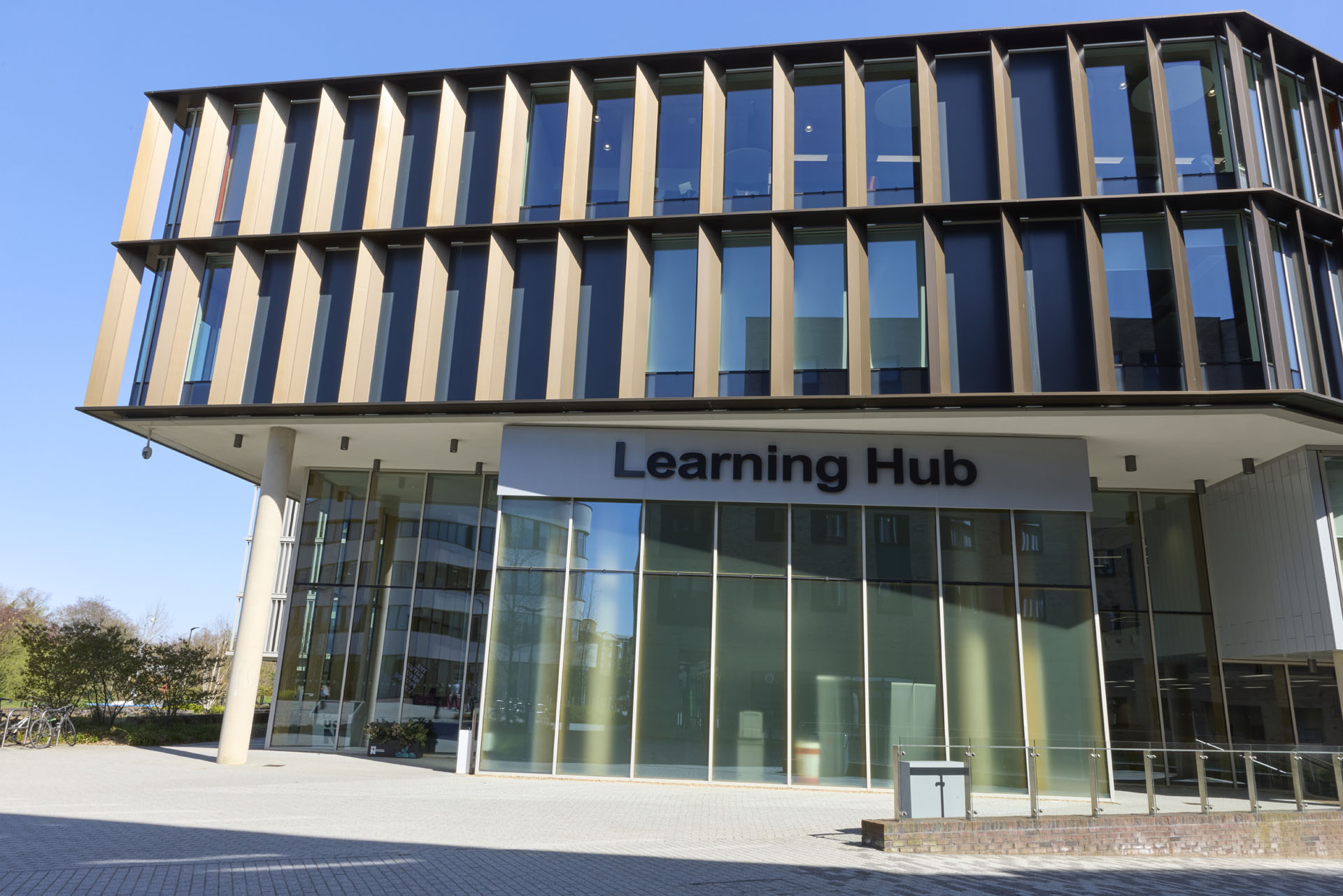
The Learning Hub is the biggest building on campus, home to our Student Information Desk, 24/7 library, teaching spaces, cafes, and more.
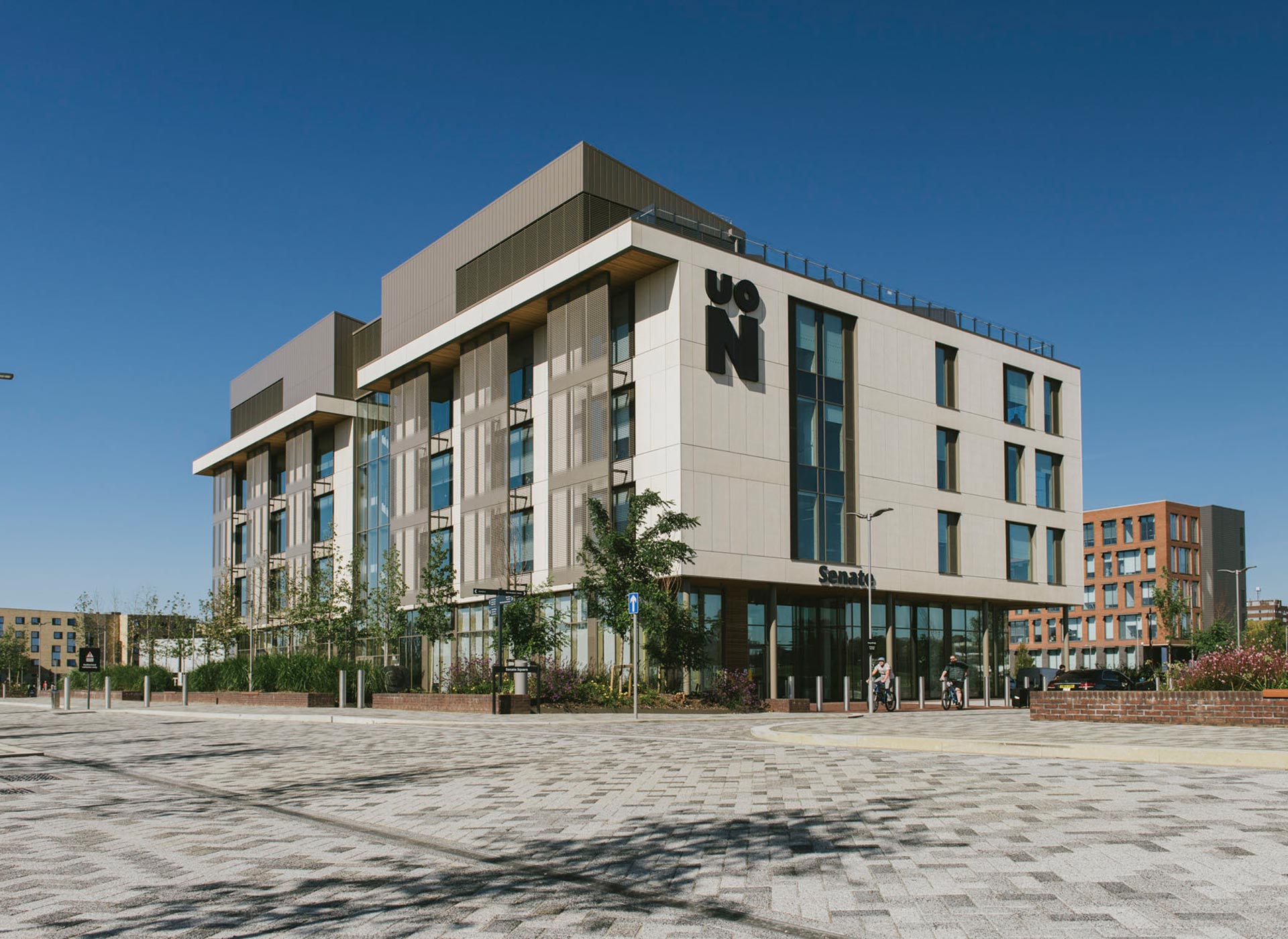
The big and spacious modern Senate building has various types of learning spaces, teaching rooms, our Bloomberg suite, Morley Room lecture hall, and cafes.
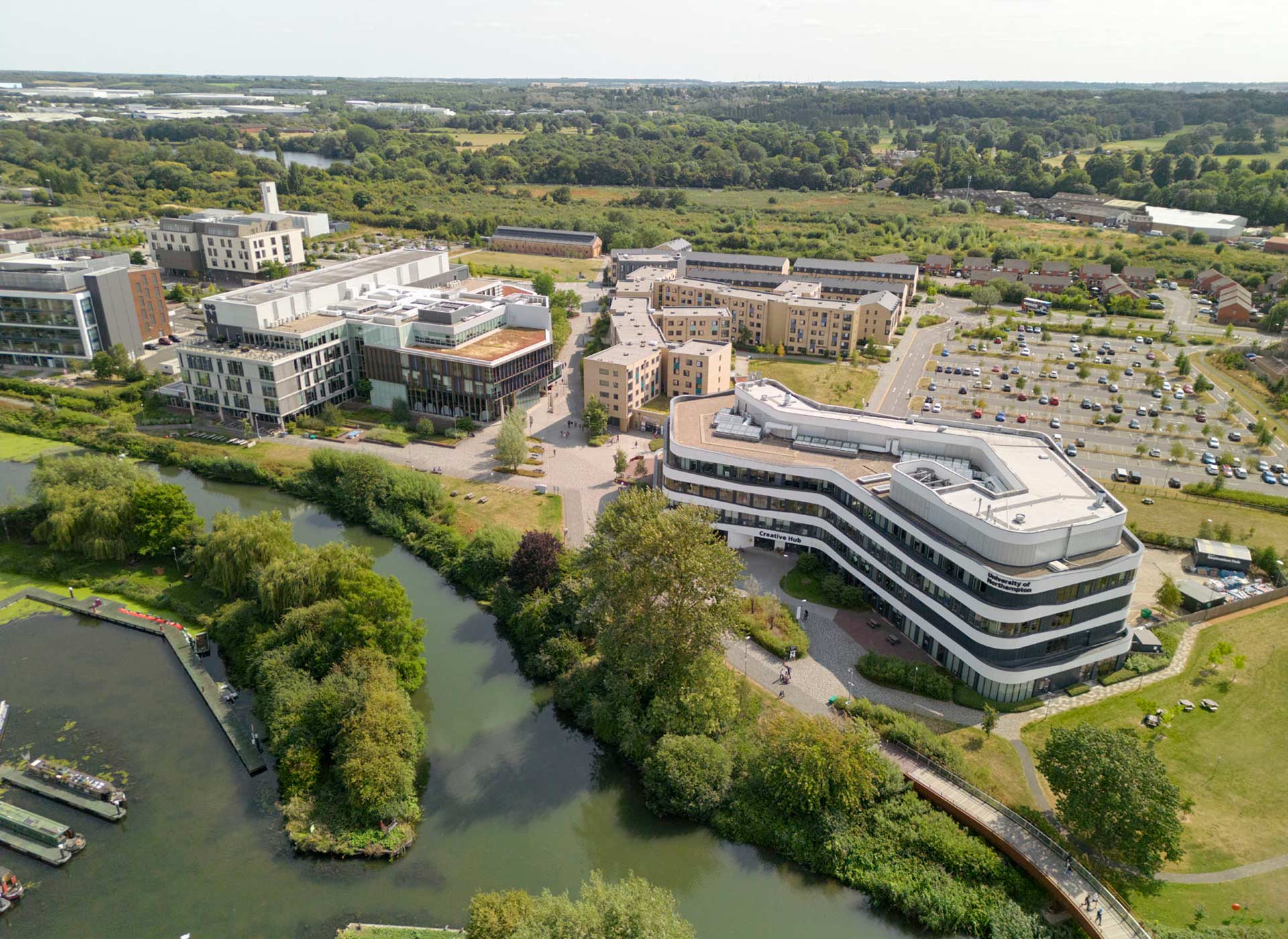
Waterside campus has everything students needs from: Learning Hub featuring 24/7 library, Creative Hub, on-site shop, restaurant, cafes and food outlets, multi-faith chaplaincy, student village hall, Students' Union and more. With only a short walk over the bridge into the town centre.
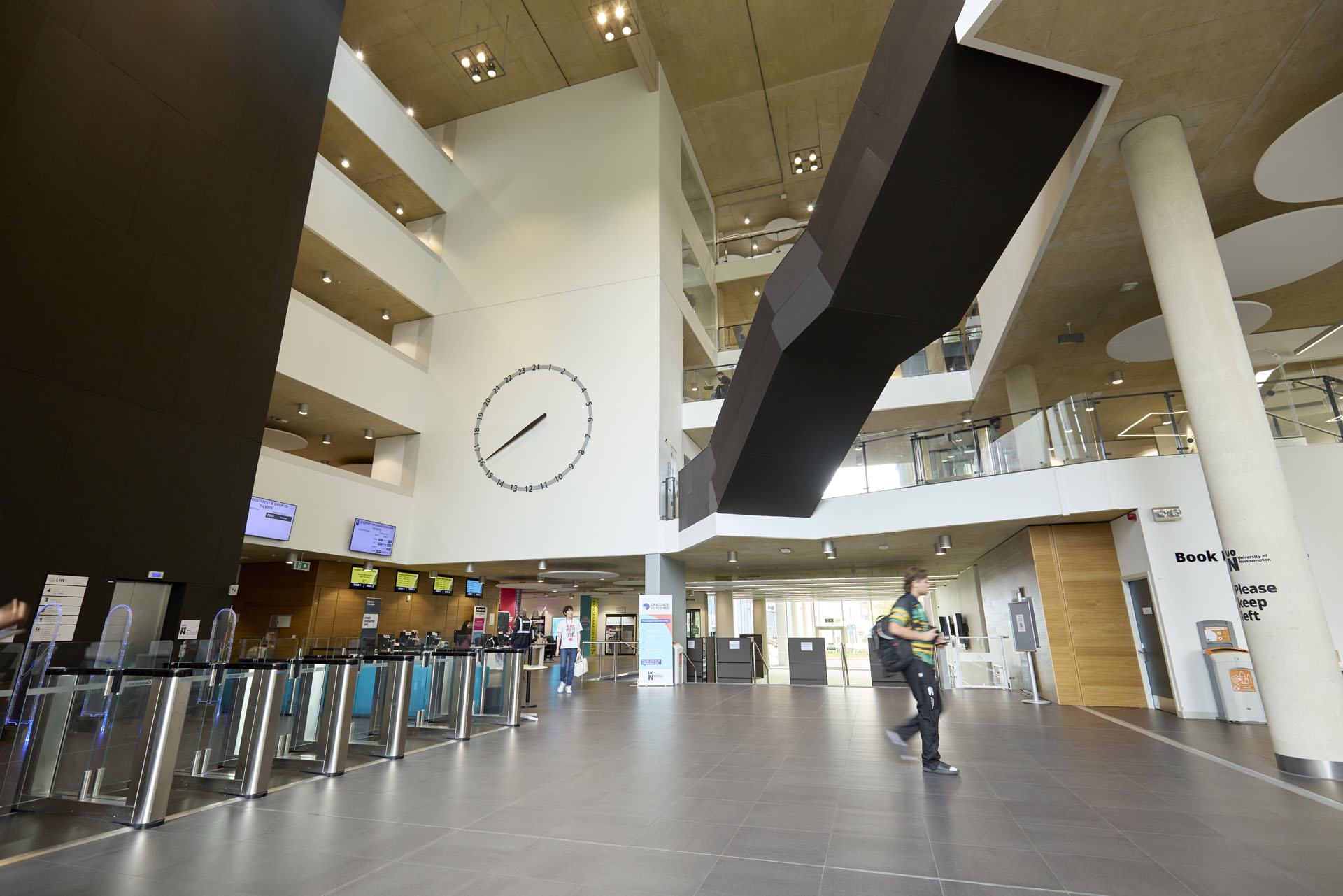
The Learning Hub and Student Information Desk would be a student's first point of call when needing support.
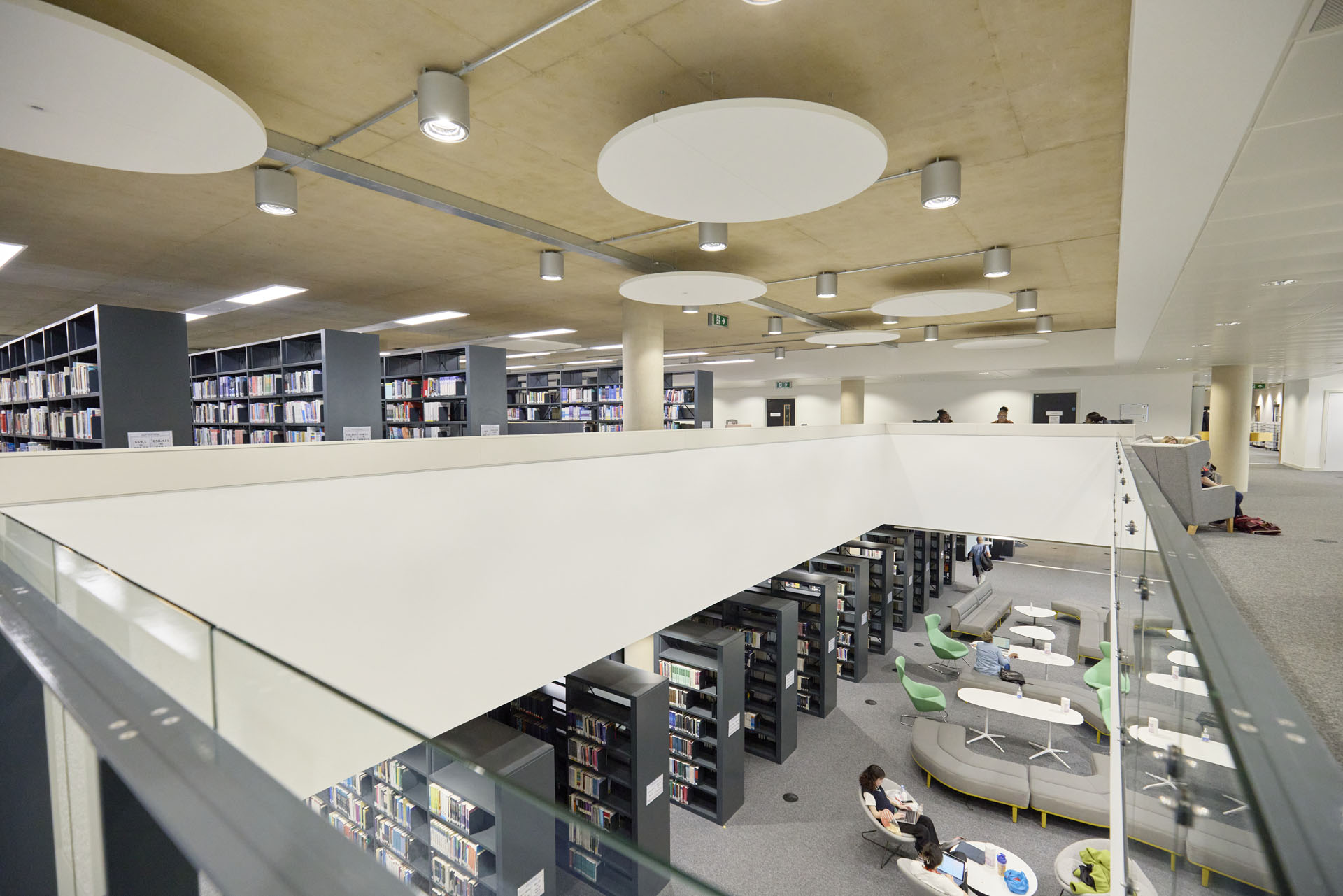
Our library covers three floors of the Learning Hub, with IT rich learning environments, including silent and group study spaces, physical books. Don't forget there are plenty more resources available online!
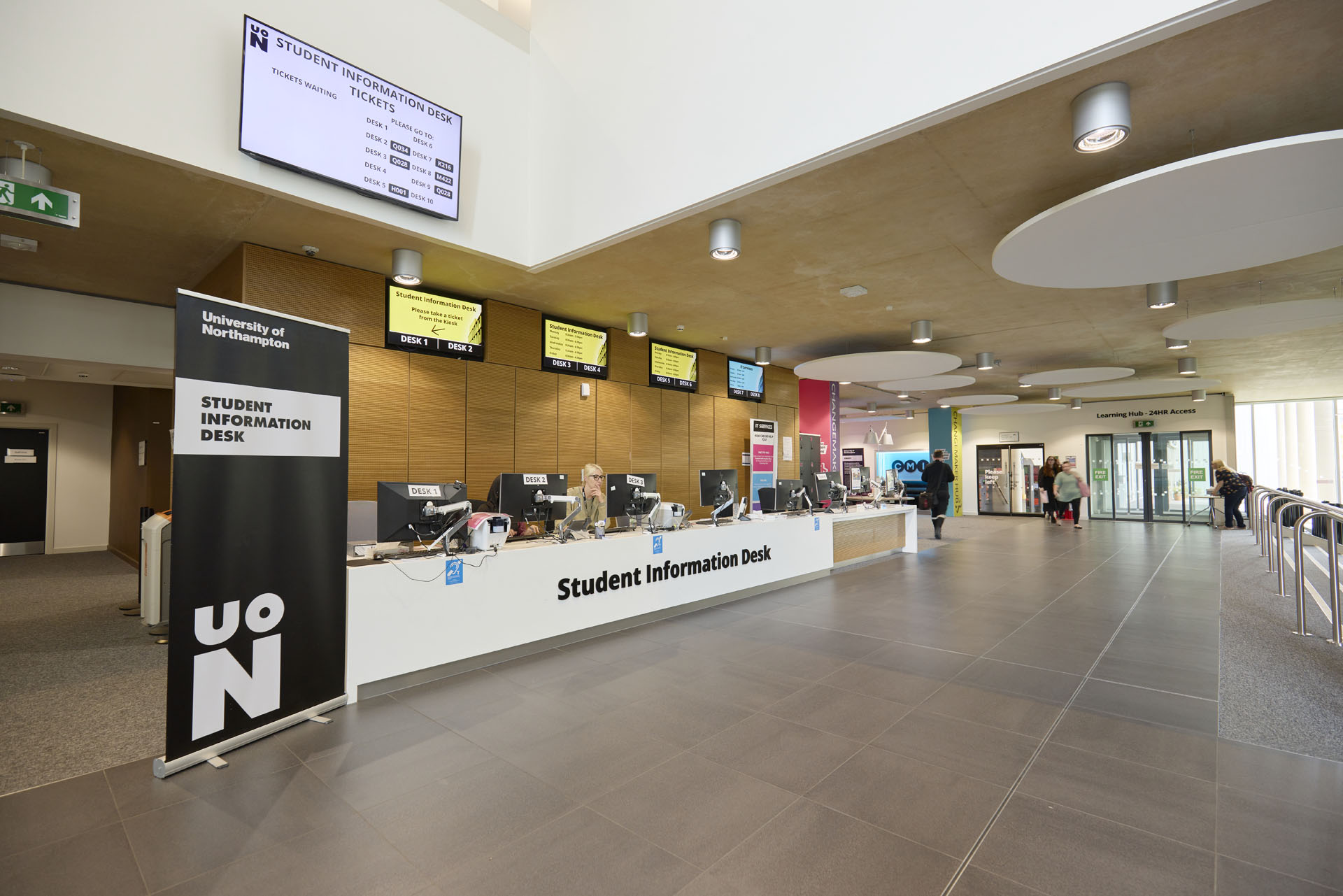
The Student Information Desk is the first place a student should go if they need any help. Here the team can direct you to academic support, mental health support, financial support, IT support, and more.
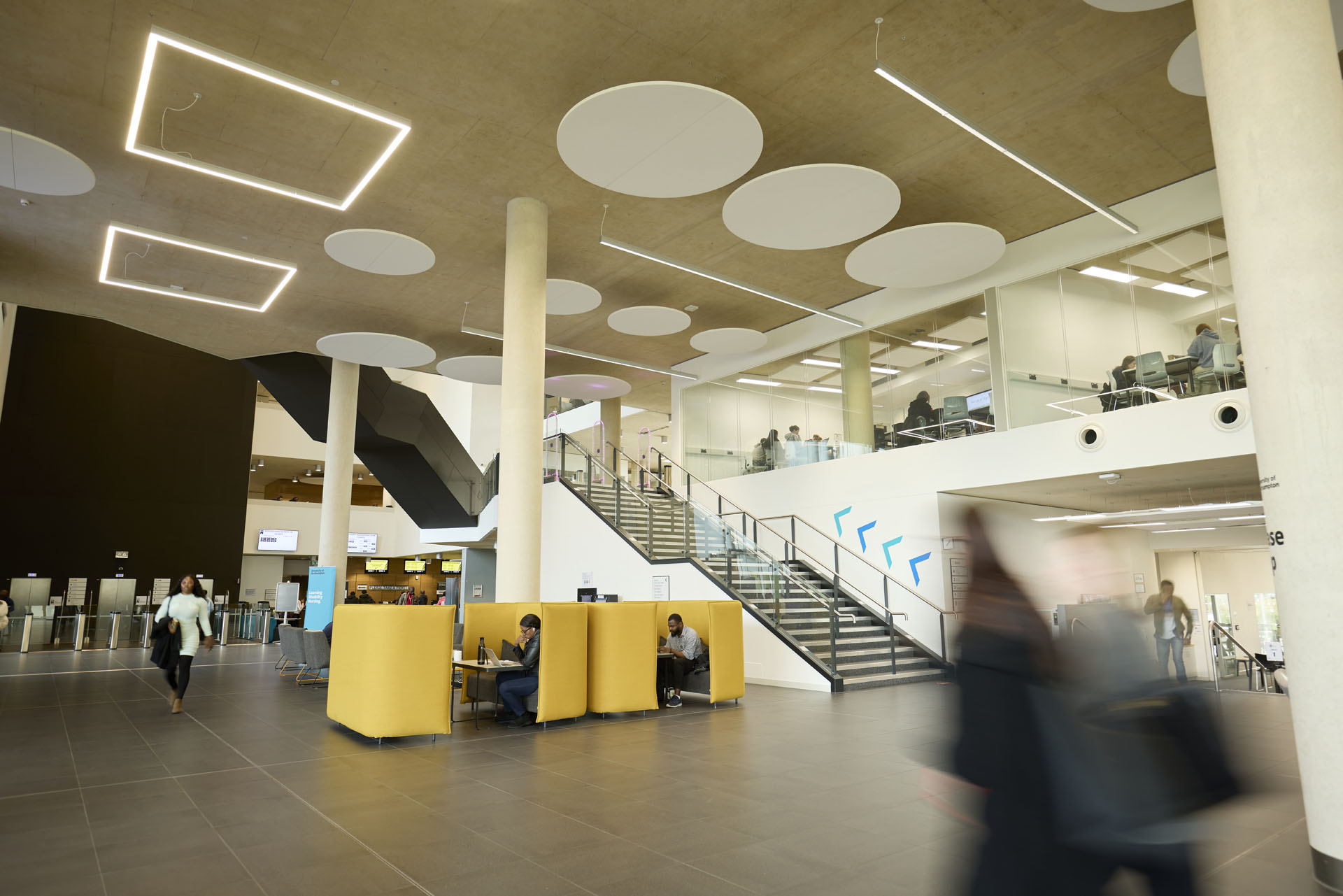
The Learning Hub is where every student will go for library support and classes, as well as food outlets and social events.
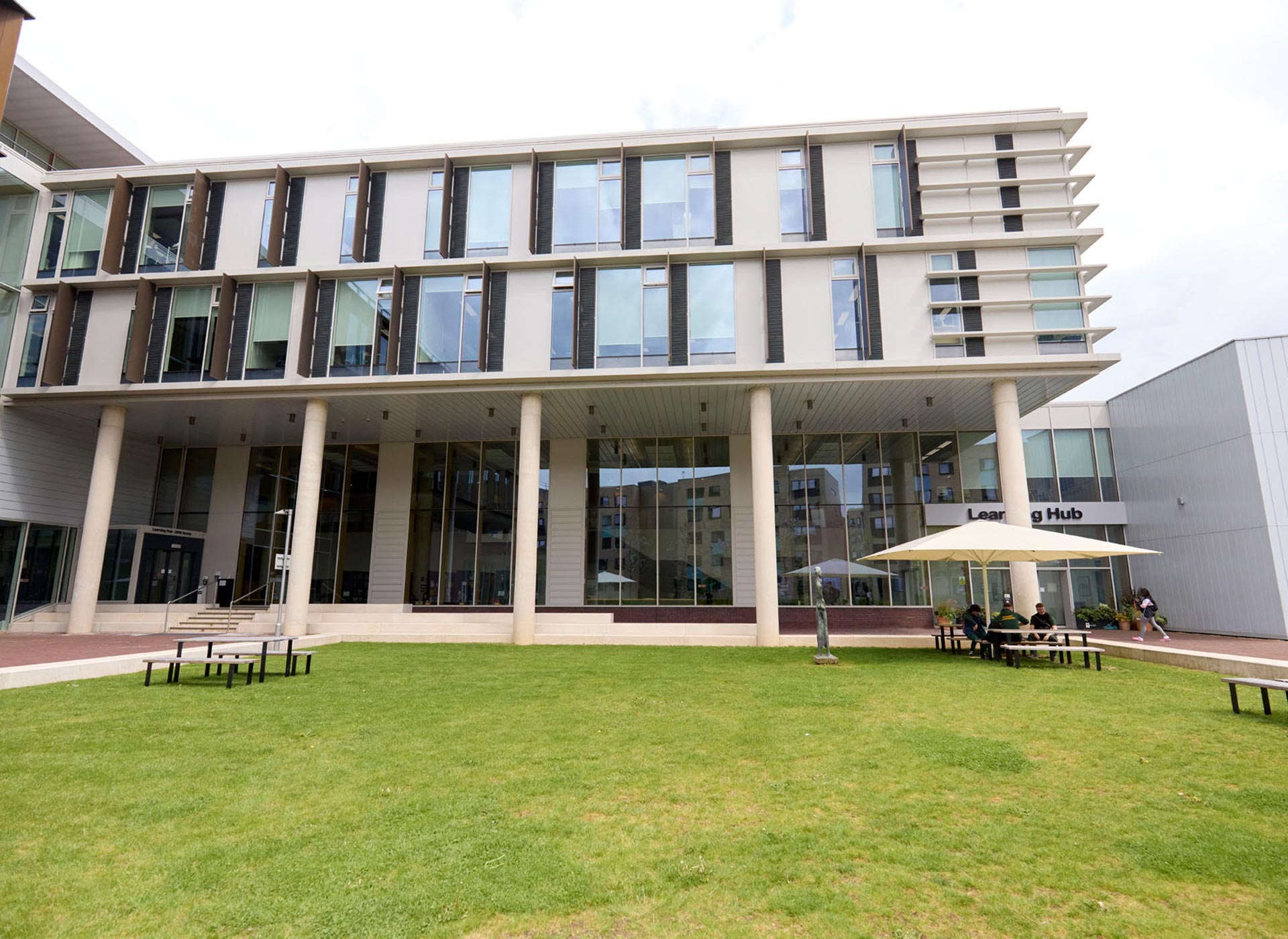
The Learning Hub also has lots of outdoor space for meeting with friends or finding some silent time between classes.

The Learning Hub is the biggest building on campus, home to our Student Information Desk, 24/7 library, teaching spaces, cafes, and more.

The big and spacious modern Senate building has various types of learning spaces, teaching rooms, our Bloomberg suite, Morley Room lecture hall, and cafes.

Waterside campus has everything students needs from: Learning Hub featuring 24/7 library, Creative Hub, on-site shop, restaurant, cafes and food outlets, multi-faith chaplaincy, student village hall, Students' Union and more. With only a short walk over the bridge into the town centre.

The Learning Hub and Student Information Desk would be a student's first point of call when needing support.
Entry Requirements
A typical offer for Working with Children, Young People and Families BA (Hons):
- CCC at A Level or,
- MMM at BTEC/Cambridge Technical or,
- Pass (C and above) at T Level.
We welcome applications from students with a mix of A levels and BTEC/Cambridge Technical qualifications.
-
In addition to general entry requirements, applicants for the University of Northampton are normally expected to hold English and Mathematics equivalent to a GCSE grade C/4.
We welcome international applications and applications from students with a range of non-traditional educational or professional qualifications. We will require that you undertake a Disclosure and Barring Service (DBS) check and ask that you demonstrate your commitment to working with children and young people, through voluntary work or similar.
-
Admission to Working with Children, Young People and Families (Hons) Integrated Foundation Year is normally:
- DEE at A Level or,
- MPP at BTEC/Cambridge Technical or,
- Pass (D or E) at T Level.
We welcome applications from students with a mix of A levels and BTEC/Cambridge Technical qualifications.
However, we would also like to hear from you if you have professional or industry experience instead, a range of other qualifications or self-developed subject knowledge that relates to the programme you wish to study.
-
All International and EU students applying for a course with us must meet the following minimum English language requirements:
- IELTS 6.0 (or equivalent) with a minimum of 5.5 in all bands
for study at undergraduate level
For information regarding English language requirements at the University, please see our IELTS page.
- IELTS 6.0 (or equivalent) with a minimum of 5.5 in all bands
Forest School
Sustainability and the natural world must be at the heart of children’s learning and we are excited about the opportunities this programme will bring to the health, education and wellbeing of our community.
Course Content
-
The University of Northampton’s degree in Working with Children, Young People and Families has been designed to contribute towards achieving the following United Nations Sustainable Development Goals: SDG3 Good Health and Wellbeing and SDG4 Quality Education.
This course produces graduates who can address gaps in provision and improve the services available to children, young people, their families and the wider community. Our staff (and external visitors) are experienced in the fields of childhood and youth studies, health, law, therapy, education, business and social care. Your studies cover the whole spectrum of working with children, young people and families.
This course will help you to:
- develop knowledge and understanding of children, young people and families within diverse cultural, inter-disciplinary and multi-professional contexts
- acquire a critical understanding of relevant theory and research in the field of children, young people and families and equip you with the skills for independent investigation
- critically analyse contemporary issues and debates in policy, practice and services for children, young people and families including international perspectives
- become an articulate, confident and reflective graduate, capable of making informed career choices and transferring your knowledge to a range of relevant contexts and making a positive impact.
Module information can be found on the Award Map.
Watch Prof Eunice Lumsden as she talks about her career in childhood, youth and families, what diversity and inclusivity mean to her, holistic safeguarding, why policymakers need to use up to date research, and more.
Please note the modules shown here relate to the academic year 24/25. The modules relating to the academic year 25/26 will be available from June 2025.
-
-
Promoting Children and Young People's Emotional Wellbeing (20 Credits)
Module code: EDU1022Status: CompulsoryThe purpose of this module is to explore the notion that having a happy and healthy childhood is the bedrock that supports children into happy and healthy adulthood. Through enhanced interactive media and experiential learning this module introduces students to tools and skills for use in their professional practice.
-
Advocacy and Activism: Children and Young People's Rights (20 Credits)
Module code: EDU1042Status: CompulsoryStudents will explore the importance of advocacy and activism in enhancing children?s voice and rights in the contemporary world. They will develop an appreciation of the impact of legislation and policy and their relevance to professionals working in children and young people's services.
-
Introduction to Childhood, Youth and Families (20 Credits)
Module code: EDU1043Status: CompulsoryThe purpose of this module is to introduce students to the field of childhood, youth, and families. The module explores definitions and understandings of `childhood?, `youth? and `family? and encourages students to understand transition concepts supporting their own transition into UON and best develop key skills for undergraduate university success.
-
Work-based learning with Children, Young People and Families (20 Credits)
Module code: EDU1044PStatus: CompulsoryThe purpose of this module is for students to gain work-based experience in a children, young people and families service setting. Students will enhance their own professional development through self-reflection, mentor feedback, literature research and tutor formative and summative assessment.
-
Fit and Healthy Childhoods: Development, Health and Learning (20 Credits)
Module code: EDU1045Status: CompulsoryThe purpose of this module is to support students to understand the holistic development of children and young people. This will allow students to appreciate the interplay of factors that shape the health and development of children and young people and impact their present and future.
-
Working Together to support Children, Young People and Families (20 Credits)
Module code: EDU1046Status: CompulsoryThe purpose of this module is to develop students? understanding of social epidemiology and its value for supporting children, young people and families. It builds an appreciation of how practitioners work together to support children, young people and families.
-
Promoting Children and Young People's Emotional Wellbeing (20 Credits)
-
-
Effective Intervention, Safeguarding and Integrated Working in Children and Young People's Services (20 Credits)
Module code: EDU2022Status: CompulsoryThe purpose of this module is to understand the experiences and life chances of children and young people who are in need, in need of protection and those looked after by local authorities. A holistic approach to working with children, young people and their families is emphasised and the importance of integrated working is illustrated and modelled through assessments.
-
Special Educational Needs and Inclusion (20 Credits)
Module code: EDU2035Status: CompulsoryStudents will develop an understanding of past and contemporary issues, legislation and practice related to Special Educational Needs and Inclusion as these impact children, young people and families. Research literature will advance students? appreciation of the complexities of SEN and the relationship between research and developments in policy and practice.
-
Research Methods (Children, Young People and Families) (20 Credits)
Module code: EDU2036Status: CompulsoryThis module will provide students with a grounding in independent research. Students will explore research methods in theory and application and gain practical research experience. A range of paradigms in social science research and related methodologies are investigated including evaluation of the suitability of different research designs, methodologies and methods.
-
Working with Families (20 Credits)
Module code: EDU2037Status: CompulsoryThis module provides students with opportunities to engage in critical debate and discussion on issues relating to children, young people and their families. Students will explore a range of issues, difficulties and challenges that families face in contemporary society, supported by the latest evidence and research in the field.
-
Diversity and Inclusion in Work Based Learning with Children, Young People and Families (20 Credits)
Module code: EDU2038PStatus: CompulsoryThe purpose of this module is for students to gain work-based experience in a children and young people?s service setting. Students will enhance their own professional development through careful consideration of issues of inclusion and diversity when working with children, young people, families and professionals.
-
Diversity and Pluralism (20 Credits)
Module code: EDU2039Status: CompulsoryThis module is designed to give students an understanding of issues and debates related to living in a diverse and plural society. The module encourages students to analyse a range of contemporary issues related to the impact diverse characteristics (and attitudes towards these) may have on lived experience and opportunities.
-
Effective Intervention, Safeguarding and Integrated Working in Children and Young People's Services (20 Credits)
-
-
Innovation, Leadership and Management in Work Based Learning with Children, Young People and Families (20 Credits)
Module code: EDU3070PStatus: CompulsoryThe purpose of this module is for students gain work-based experience in a children and young people?s service setting. Students will lead their own professional development through critical self-reflection in consideration of management and leadership in children services and their personal development planning as change makers in the children?s workforce.
-
Places and Spaces: Geographies of Childhood and Youth (20 Credits)
Module code: EDU3071Status: CompulsoryThis module critically explores the geographies of children and young people. These places and spaces will be considered analytically regarding both risk and opportunity. Students will consider how to identify and use place and space in ways that empower children and young people.
-
Empowering and Therapeutic Approaches to Working with Children, Young People and Families (20 Credits)
Module code: EDU3072Status: CompulsoryThe purpose of this module is to broaden students? knowledge of alternative approaches that are therapeutic in nature and enable nurturing relationships, development and learning in order to grow their confidence and skills in when and how to engage such approaches.
-
Social Justice and Equity (20 Credits)
Module code: EDU3073Status: CompulsoryThe purpose of this module is to interrogate competing explanations about inequalities. Students will critically consider and apply social, justice theories to better understand the lived experiences of children and young people. This includes considering issues of risk, power, control and opportunities, contextualised within national and global systems.
-
Children, Young People and Families Dissertation (20 Credits)
Module code: EDU4010Status: CompulsoryThe purpose of this module is for students to investigate, in depth, a topic of their own choosing, within the field of children and young people. In doing so students will demonstrate honours level graduate skills associated with a significant piece of independent research.
-
Innovation, Leadership and Management in Work Based Learning with Children, Young People and Families (20 Credits)
-
At the University of Northampton, everything we do, from funded trips to paid internships, is to give you everything you need to make a difference when you leave.
If you join our full-time Children, Young People and Families degree at Northampton, you will receive a laptop when your course begins*. The laptops are built to a bespoke custom specification ideal for use in the seminar room, collaborative group work or studying at home.
Whatever your ambitions, we’re here to help you to achieve them. We’ll support you to identify the skills you’re learning during your course, find your strengths and secure practical experience so that when it comes to applying for jobs or further study you’ll feel confident in standing out from the crowd. We’ve created the Northampton Employment Promise because we are so confident that if you focus on your studies and complete one of our awards you’ll be highly employable by the time you graduate. Putting you in a great position to secure employment or continue your studies.
To check out the full list of perks, visit our Student Perks page or dedicated International Perks page.
* UK fee payers only (see Terms and Conditions for further details)
-
The Integrated Foundation Year (IFY) offers a new and exciting route into studying for a degree, attracting ambitious and driven students who are willing to learn and advance.
If you have non-standard qualifications or do not quite meet the admissions requirements we can offer you a fantastic opportunity to study a four year programme which includes an Integrated Foundation Year. The Integrated Foundation Year will help you develop the theoretical/practical and academic skills you need, in order to successfully progress to the full award.
The University of Northampton’s four-year courses will enable you to successfully follow the degree pathway of your choice while gaining essential study skills. The foundation year of your chosen degree will be studied on a full-time basis and is aimed at supporting the transition to higher education. Years two, three and four are then studied as a standard degree programme.
-
How will I learn on the Working with Children degree?
Throughout the Working with Children, Young People and Families degree, you will learn through the use of seminars, workshops, work-based activities, online learning and self-directed study. We also organise specialist guest speakers to run sessions, for example, exploring the impact of domestic violence. In addition, we arrange study trips, for example to a local prison and to the Houses of Parliament, and to local schools to carry out project work.
At the University of Northampton, we work hard to ensure you are fully supported during your studies by allocating you a personal tutor, offering regular tutorial support and running assessment workshops.
How am I assessed?
There are no exams on this degree. Instead, you will be assessed through a range of methods including interviews, reports, case studies, presentations, practical projects and reflective tasks.
What will my timetable look like?
Your teaching is consolidated to help make the best use of your time. You might expect to be in university two or three days a week. This helps free up the rest of your timetable for tutorials, working on your assignments and gaining valuable work experience.
Is there any work based learning?
Work-based learning is central to the degree in Working with Children, Young People and Families. It supports you to explore different career options. Every year you will complete a placement with a different focus. We will allocate you a setting based on your interests. You will receive mentoring and support to help you make the most out of your work-based experience. Example work-based settings include, youth clubs, family support services, children’s homes, sports development programmes, working with at risk young people, mental health programmes, SEN provision, schools and theatre groups. If you already have a setting in mind, perhaps nearer to a home-base away from Northampton, we can support you to approach this setting and (subject to necessary checks) work with a mentor there to develop your work-based skills and evidence the learning outcomes.
Are there any study trips available?
There are exciting opportunities to take part in national and international study trips, for example:
- Spend one week in Sweden to explore alternative ways of working with children, young people and families.
- Go to Atlanta in America to explore the civil rights movement.
- Visit a local prison to hear prisoners’ experiences.
Worried about student finance?
Get all the info you need ahead of time, before you can apply for funding in Spring on our fees and funding pages.
Fees and Funding
2025/26 Tuition Fees
Fees quoted relate to study in the Academic Year 25/26 only and may be subject to inflationary increases in future years.
- UK Full Time: £9,535
- UK Part Time: £1,585 per 20 credit module
- UK Integrated Foundation Year: £5,760 for the foundation year; thereafter standard fees apply
- International Full Time: £15,700
- International Integrated Foundation Year: £15,700 for the foundation year; thereafter standard fees apply
Fees quoted relate to study in the Academic Year 2025/26 only and may be subject to inflationary increases in future years. UON will adjust UK fees annually in line with Government Policy.
-
During the Working with Children, Young People and Families BA degree you will have the opportunity to join a study trip. Previously, these have included a week in Sweden examining alternative models of working with children and young people, and the opportunity to visit Atlanta exploring the origins of the civil rights movement. All the study trips are optional and the costs vary year on year. Typically, this is £500 for Sweden and £1,200 for Atlanta. Students normally allow an additional £100 – £250 for their expenses.
-
For information on the scholarships available to you, please see our scholarships page.
For more information about possible funding options, please visit our Fees and Funding pages.
-
Fees quoted relate to study in the Academic Year 24/25 only and may be subject to inflationary increases in future years.
- UK – Full Time: £9,250
- UK – Part Time: £1,540 per 20 credit module
- UK – Integrated Foundation Year: £9,250 as part of a four year programme (subsequent years will be charged at standard BA rate).
- International: £15,200
- International Integrated Foundation Year: £15,200
Careers and Employability
One of the main advantages of this degree is that it supports you to explore a wide range of careers relating to children, young people and families. We will support you during your degree to explore and refine your career path.
As part of the degree, you will have the chance to achieve additional qualifications to help further enhance your CV and to help you stand out in the graduate employment market. For example, you could gain further skills and certification in mental health awareness, mentoring, supporting transitions, facilitating group work, enhancing digital literacy and first aid.
Our graduates have gained employment in a range of areas, for example, as a Youth Offending Officer, Family Support Worker, Mental Health Support Worker, MASH Officer, Youth Worker, Drug and Alcohol Worker, Housing Officer, Residential Keyworker, School Counsellor, Play Worker, Sports Development Officer and as a Primary School Teacher.
Graduate schemes are also a great career option, for example, the Police Graduate Leadership Programme, Explore Learning Assistant Director, Frontline Leadership Development Programme and the Into University Graduate Education Worker Scheme.
Master’s Opportunities
Our postgraduate courses are a great way to enhance the skills you have already learnt. Benefit from our 20% alumni discount on postgraduate fees to give you a CV that will catch the eye of employers.
Graduates from this degree may be interested in postgraduate opportunities such as: Social Work MA, Primary Education PGCE, Child and Adolescent Mental Health MSc, Counselling Children and Young People MSc and Special Educational Needs and Inclusion MA.

Related Courses

Early Childhood Studies BA (Hons)
The Early Childhood Studies degree takes a holistic approach to the development of young children, from...

Education Studies BA (Hons)
A degree in Education Studies will help you to understand the key issues, policies and debates...
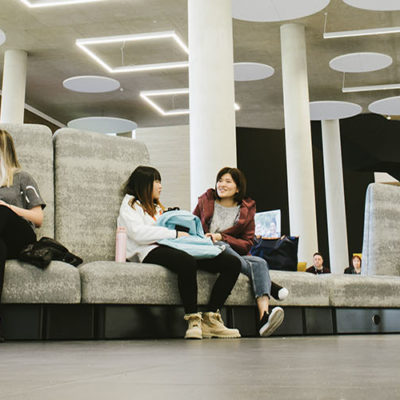
Social Work BA (Hons)
Our Social Work BA (Hons) aims to equip you with the knowledge, skills and values appropriate...
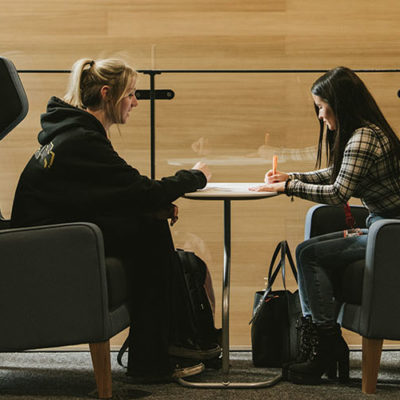
Health and Social Care Practice BA (Hons)
A global perspective of current and emerging health and social care issues and approaches through theory...
